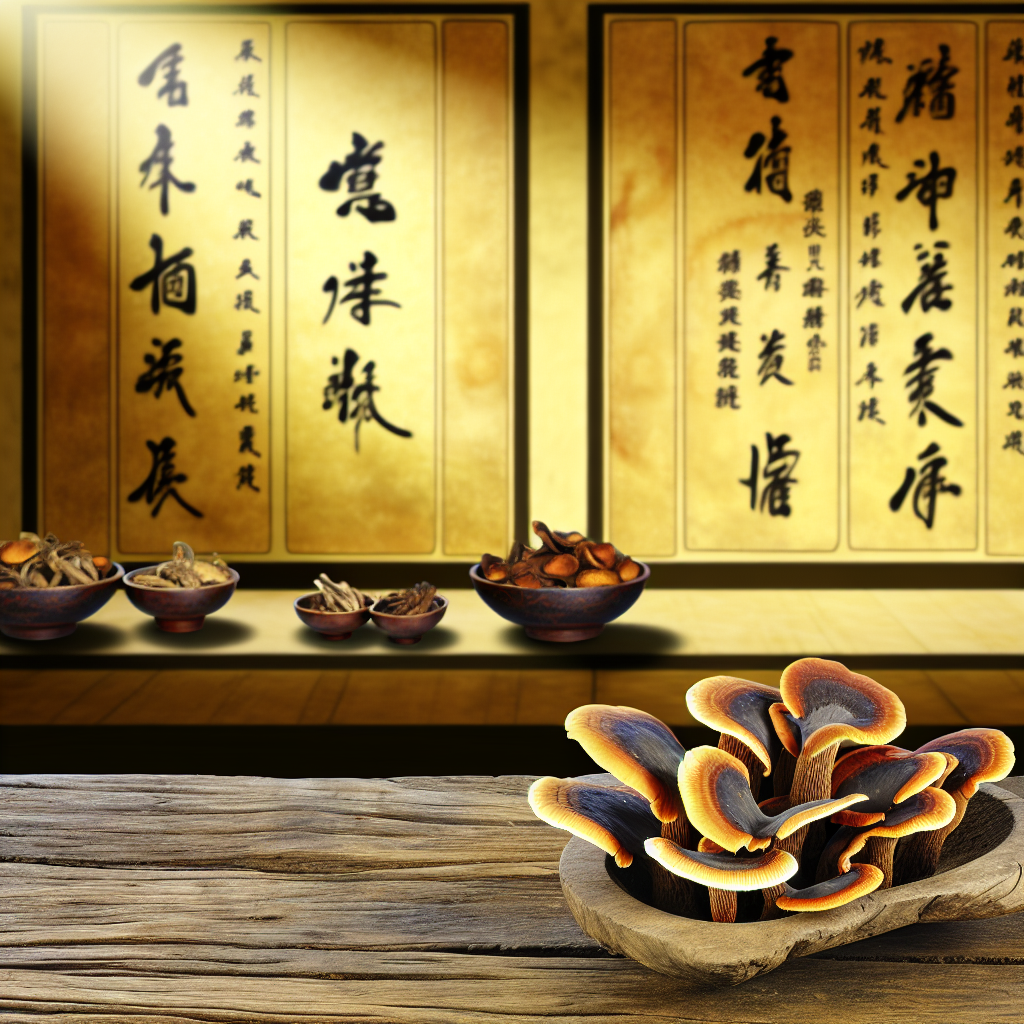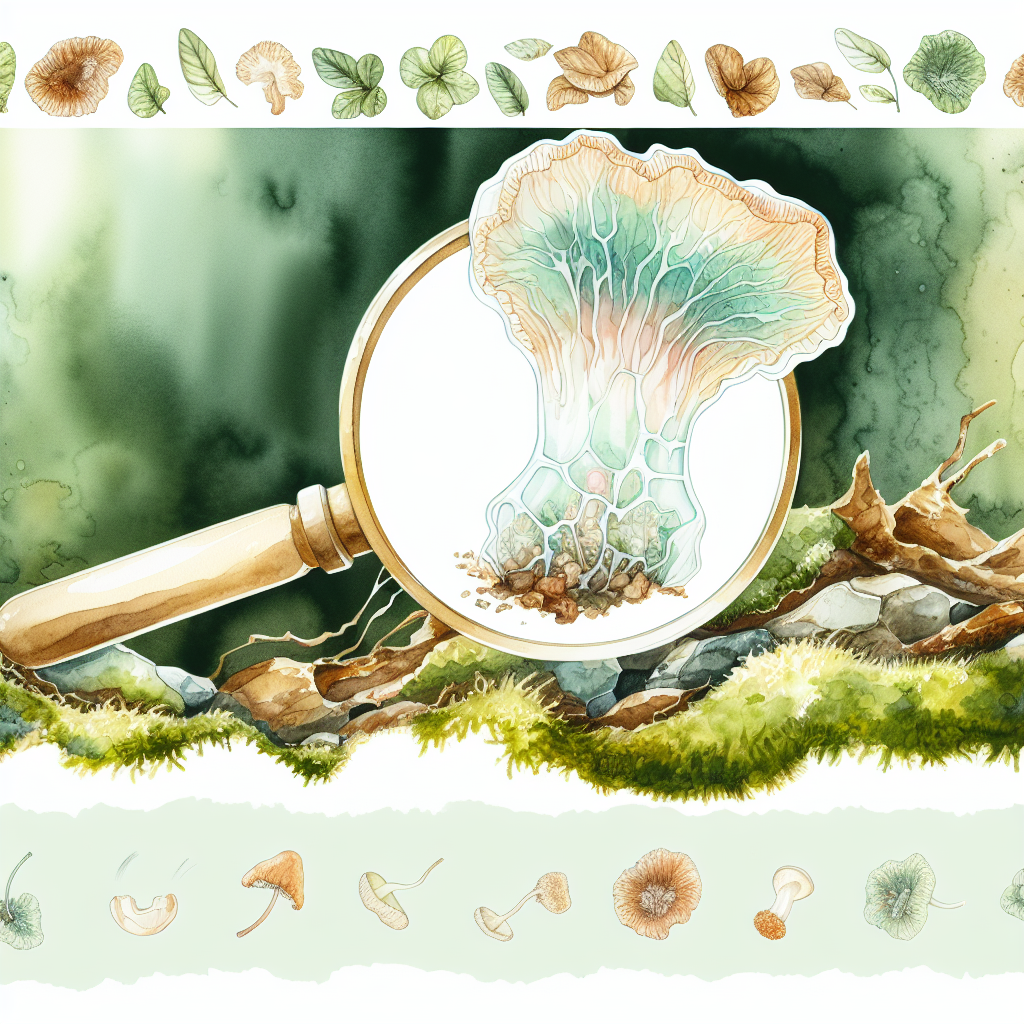# Wood Ear Mushroom Benefits: Traditional Chinese Medicine Validated
Introduction: From Ancient Wisdom to Modern Wellness
For centuries, Traditional Chinese Medicine (TCM) has utilized the natural world to develop remedies and holistic wellness strategies. Among the arsenal of natural substances in Chinese pharmacopeia is the wood ear mushroom—also known as Auricularia auricula-judae or simply “black fungus.” Commonly found growing on decaying trees in Asia, this jelly-like mushroom may not look like much, but its nutritional and medicinal value is increasingly sparking interest in the global health and wellness community.
In Chinese culture, wood ear mushrooms are prized not only for their culinary diversity but also for a long-standing reputation for promoting longevity and improved health. Often featured in soups, stir-fries, and tonic teas, these mushrooms are thought to invigorate the blood, moisturize the lungs, and support healthy circulation. What separates the wood ear mushroom from many other fungi is its rich nutrient profile—containing essential vitamins like B2 and D, minerals such as iron and potassium, dietary fiber, and a host of polysaccharides believed to contribute to immune modulation.
While Western science long overlooked this edible fungus, researchers are now taking note. In particular, the wood ear mushroom’s potential to support cardiovascular health, aid digestion, and exhibit anti-inflammatory and antioxidant properties is receiving validation through modern scientific methods. What was once rooted primarily in observation and anecdotal use is now being quantified and confirmed in laboratories and clinical studies.
For consumers exploring functional foods or seeking plant-based alternatives to synthetic drugs, the wood ear mushroom is an emerging superfood with a portfolio of wellness-supporting attributes. For medical cannabis professionals, especially those focused on integrative and holistic care, understanding the role wood ear mushrooms can play in immune support, gut health, and inflammation management is central to building comprehensive, personalized treatment plans.
The intersection of TCM and modern pharmacology is paving the way for intentional co-administration with therapeutic cannabis. As researchers continue to uncover natural synergies between plant-based compounds, such as beta-glucans in mushrooms and cannabinoids in cannabis, interest in precision wellness intensifies. Wood ear mushrooms, with their gentle yet effective biological actions, provide an invaluable addition to the functional toolkit of consumers and clinicians alike.
Backed by Science: Modern Research Validates Wood Ear Mushroom Benefits
Recent scientific investigations have begun to corroborate many of the traditional claims attributed to Auricularia auricula-judae. Most notably, its powerful polysaccharide and antioxidant compounds are drawing attention for their health-promoting capabilities.
A 2019 study published in Food & Function detailed wood ear mushroom’s unique polysaccharide profile, showing significant antioxidant activity capable of scavenging free radicals and reducing oxidative stress—a key contributor to chronic diseases and aging processes ([source](https://pubs.rsc.org/en/content/articlelanding/2019/FO/C9FO00221G)).
Promoting Cardiovascular Wellness
A pivotal area of interest is cardiovascular health. Wood ear mushrooms have been documented to help reduce blood viscosity and improve circulation. A study published in Pharmaceutical Biology (2017) studied the anticoagulant potential of polysaccharides extracted from Auricularia auricula-judae and found that these compounds can inhibit platelet aggregation, suggesting a natural therapeutic pathway for reducing thrombotic events such as stroke or heart attack ([source](https://www.tandfonline.com/doi/abs/10.1080/13880209.2017.1279714)).
Preliminary reports also suggest that these mushrooms exhibit hypolipidemic properties, potentially lowering cholesterol through dietary fiber and phytosterols. These findings align with traditional beliefs in TCM that the mushroom ‘clears heat’ and ‘removes stagnation,’ consistent with promoting arterial health.
Enhancing Immune Balance and Protection
Immunologically, wood ear mushrooms may support immune regulation through their beta-glucan content—complex polysaccharides known for enhancing innate immunity by activating macrophages and natural killer cells. A 2021 investigation in Molecules analyzed the immunomodulatory properties of Auricularia-derived polysaccharides and confirmed their dose-dependent stimulation of immune response in vitro ([source](https://www.mdpi.com/1420-3049/26/2/467)).
Supporting Gut Health and Digestive Harmony
For gut health, emerging research suggests these mushrooms act as a prebiotic, fostering beneficial gut microbiota populations that influence inflammation, metabolism, and even mood. The high fiber content may also foster healthy digestion through improved bowel motility and nutrient absorption.
Potential in Cancer Therapy: A Natural Adjunct?
Further, the myco-compounds in wood ear mushrooms demonstrate potential roles in oncology. A review published in the International Journal of Biological Macromolecules identified apoptotic and anti-proliferative behavior in cancer cell lines when exposed to Auricularia polysaccharide extracts, signaling possible adjunct uses in cancer prevention or therapy when combined with chemotherapeutic or cannabis-related regimens ([source](https://www.sciencedirect.com/science/article/abs/pii/S0141813019335377)).
While more clinical trials are necessary to substantiate these findings in human populations, the convergence of TCM tradition with biomedical data makes wood ear mushrooms uniquely situated at the forefront of integrative medicine. For cannabis practitioners, synergistic applications of cannabinoid therapy and functional fungi supplementation are ripe for exploration, particularly for inflammation, neuroprotection, and immune modulation.
Conclusion: Wood Ear Mushrooms — A Superfood for the Future
Wood ear mushrooms, long revered in Traditional Chinese Medicine, are gaining contemporary recognition for their profound health benefits. Scientific research now echoes what TCM has known for centuries—Auricularia auricula-judae is more than a culinary staple; it’s a functional food with impressive therapeutic promise.
From cardiovascular health and immune support to antioxidant capacity and gut wellness, the mushroom’s bioactive power deserves a place in the evolving conversation around integrative and cannabis-enhanced healthcare. As interest in plant-based and fungal therapeutics continues to climb, wood ear mushrooms stand as a validated bridge between ancient wisdom and modern science.
## Summary
Wood ear mushrooms, long revered in Traditional Chinese Medicine, are gaining recognition for their profound health benefits. Scientific research now validates many of the traditional claims about their ability to support cardiovascular health, enhance immune function, exhibit antioxidant properties, and promote gut wellness. As interest in plant-based and fungal therapeutics grows, wood ear mushrooms are emerging as a versatile functional food with promising applications in integrative and cannabis-enhanced healthcare.
## References
1. [Wood ear mushroom antioxidant study](https://pubs.rsc.org/en/content/articlelanding/2019/FO/C9FO00221G)
2. [Wood ear mushroom anticoagulant potential](https://www.tandfonline.com/doi/abs/10.1080/13880209.2017.1279714)
3. [Wood ear mushroom immunomodulatory properties](https://www.mdpi.com/1420-3049/26/2/467)
4. [Wood ear mushroom anti-proliferative effects in cancer](https://www.sciencedirect.com/science/article/abs/pii/S0141813019335377)



